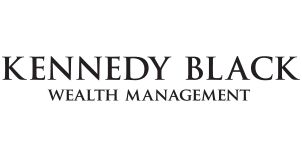To buy or not to buy… that is the question
With property prices in London pushing back unerringly towards their pre-crisis levels, you would be forgiven for thinking that we never really went through a crisis in the first place. (A quick visit to your nearest mortgage lender might bring that idea back down to earth, mind!)
Unfortunately, for those people who live in rented accommodation, the question of whether to buy or rent is perhaps as complicated as ever. Here, therefore, is a quick guide that might help you establish whether you are better off renting or better off buying.
It is possible to compare renting with buying, but as with all comparisons the key is to ensure you are comparing like with like. The cost of renting is pretty straightforward – just take a look at your bank statement each month. The comparable cost of buying, on the other hand, is a bit more complicated, and it is made up of three key elements:
- The cost of the interest payments on the mortgage
- The opportunity cost of the deposit that you have invested in the property
- The actual costs of purchasing (e.g. stamp duty, conveyancing costs etc.)
Let’s look at a theoretical example:
Let’s say you rent a furnished flat in London for £2,000 a month. That’s your cost of renting, plain and simple.
To work out the comparable cost of buying, you will first need to value the property. You could make friends with a local estate agent and invite them round for a cup of tea and a biscuit, or you could use a more rough-and-ready guide using some useful tools available on the internet. If the property has been bought in the past ten years or so, then you should be able to find the purchase price online (e.g. http://www.nethouseprices.com or http://www.zoopla.com). You should then index that price using Land Registry data for your local borough (http://www.landregistry.gov.uk). In our example, let’s say the flat sold for £250,000 in 2002 and might now be worth £450,000 according to the Land Registry index.
If we assume you have a 25% deposit (to be recommended in the current mortgage market) then to buy this flat you would need to borrow £337,500. Long-term interest costs on such a mortgage are not easy to estimate, but let’s take a slightly conservative 5% as a guide (current rates particularly at the short end are typically lower than this, although rates will undoubtedly rise at some point). Your interest payments will hence be around £1,400 per month.
However, you are putting down a deposit of £112,500 and that could earn somewhere in the region of 6% if invested elsewhere (that’s a pretty arbtirary figure, I’ll admit). The monthly return that you are sacrificing by investing in a non-income producing property is approximately £500. So your overall cost for comparison is £1,900 per month, right? Wrong.
The costs of buying a house should not be underestimated. Stamp duty at 3% and solicitor/valuation costs of probably £2,000 would combine to reach over £15,000 in this instance. You may intend to live at your property for the full 25 year term of the mortgage, but perhaps five years is more realistic. That’s roughly another £200 a month to factor in. Hence, your overall cost of buying is more like £2,100. Plus, there are other maintenance costs that you might not otherwise have to pay as a tenant. In this example, there is a clear bias towards continuing to rent and many would argue that property prices look overvalued as a result (The Economist being a notable example, as they run a global house price index and regularly compare the data to the comparable cost of renting).
However, the one very important factor not included here is house price appreciation. If house prices were to go up further by, say, 6% a year, you might think that would effectively counter-balance the opportunity cost of the investment of your deposit (or may even be offset by a similar 6% rise in rents, effectively cancelling each other out). However, in actual fact, your exposure to house prices is leveraged (i.e. you are borrowing money to purchase a much bigger asset) whereas your deposit invested elsewhere would probably not be. If house prices go up by 6% per annum then you make an effective return of 24% (i.e. a price rise of £27,000 on a deposit of £112,500). In such a situation, your monthly ‘cost of buying’ calculation would plummet to less than zero since you would be making £2,250 a month on the rising value of your home while it would cost you £2,100 a month in interest and other costs.
So it is perhaps unsurprising to learn that, as with all investments, whether to buy or not boils down to an investment decision and your view of whether the investment will go up in value (or not). The above should serve as a bit of a guide as to whether prices are over-valued or not, but with property prices supposedly rising sharply despite the economic climate, there is no easy answer.
The above is of course a very rough example and should not be taken as anything other than a guide to how the calculations might work in practice. Feel free to replace the numbers with your own details and you can make the assessment yourself. Or alternatively, you are more than welcome to ask us to crunch the numbers on your behalf.




Sorry, the comment form is closed at this time.